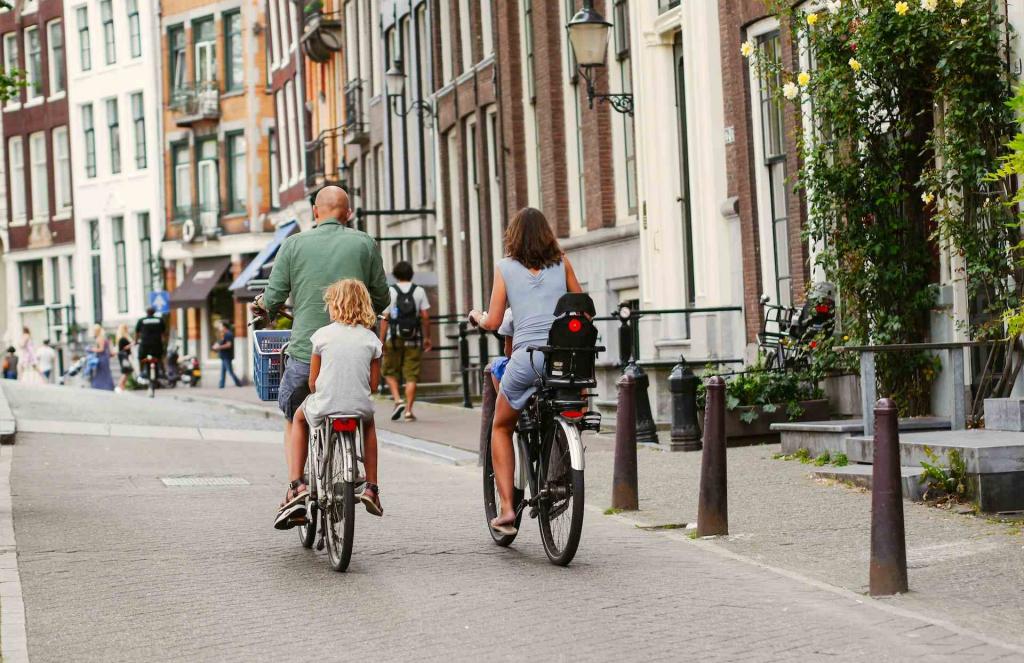Thessaloniki gets ready for its metro launch in November
The underground rapid transit lines have been under construction for almost two decades due to various project delays
 TheMayor.EU logo
TheMayor.EU logo 
Many EU cities used the occasion of European Mobility Week to try out car-free Sundays, Source: Dana Marin / Unsplash
During European Mobility Week, many EU cities instituted car-free Sundays, becoming more accessible for public transport and cycling
Last Sunday, Brussels instituted a no-cars Sunday to mark the European Mobility Week, between 16 and 22 September. Between 9:30 AM and 7:00 PM cars were prohibited from driving in a lot of the city, giving way to public transport and bikes instead.
During that time, Bruxelles Environement, the city’s environment agency noted a 90% reduction in nitrogen monoxide (NO) and nitrogen dioxide (NO2), which are both toxic substances emitted by internal combustion engines.
Additionally, the city also saw a significant reduction in noise levels, making for a calm and quiet Sunday. This also highlights a point urban planners have been making in recent years, that cities are not noisy, cars are noisy.
According to a report from Bruxelles Environment on 19 September, the busiest axes for travel in the city were affected the most by the drop in emissions. At the Ars-Loi station, for example, the concentration of nitrogen oxide and nitrogen dioxide dropped by 80% compared to regular weekends.
Compared to weekdays, the drop is even steeper, with about 90% for nitrogen oxide and 86% for nitrogen dioxide.
Furthermore, background noise levels also dropped around the Belgian capital. The results were compared at sound measuring stations near roads and highways. For example, near the E411 in Auderghem and near the E40 in Woluwe-Saint-Lambert, sound measuring stations registered a 90% drop in noise levels.
For less noisy streets like Avenue Houba de Strooper and Chaussée de Wavre in Auderghem, the drop was less pronounced, though still significant – at 68%.
Authorities point out that yearly emissions have been going down since 2019, by about 10% per year. However, there is still a long way to go, since according to the European Environment Agency, in 2018, Belgium registered around 8,900 deaths caused by air pollution.

The underground rapid transit lines have been under construction for almost two decades due to various project delays

Now you can get your wine in Talence by paying directly in Bitcoin

That’s because the state has to spend money on updating the railway infrastructure rather than subsidizing the cost of the popular pass

Rethinking renewable energy sources for the urban landscape

The examples, compiled by Beyond Fossil Fuels, can inform and inspire communities and entrepreneurs that still feel trepidation at the prospect of energy transition

Now you can get your wine in Talence by paying directly in Bitcoin

The 10th European Conference on Sustainable Cities and Towns (ESCT) sets the stage for stronger cooperation between the EU, national and local level to fast track Europe's transition to climate neutrality.

At least, that’s the promise made by the mayor of Paris, Anne Hidalgo

The underground rapid transit lines have been under construction for almost two decades due to various project delays

At least, that’s the promise made by the mayor of Paris, Anne Hidalgo

Hostal de Pinós is located in the geographical centre of the autonomous region

Despite its church-y name, the district has long been known as the hangout spot for the artsy crowds

Urban dwellers across the EU are having a say in making their surroundings friendlier to people and the environment.

Forests in the EU can help green the European construction industry and bolster a continent-wide push for architectural improvements.

Apply by 10 November and do your part for the transformation of European public spaces

An interview with the Mayor of a Polish city that seeks to reinvent itself

An interview with the newly elected ICLEI President and Mayor of Malmö

A conversation with the Mayor of Lisbon about the spirit and dimensions of innovation present in the Portuguese capital














